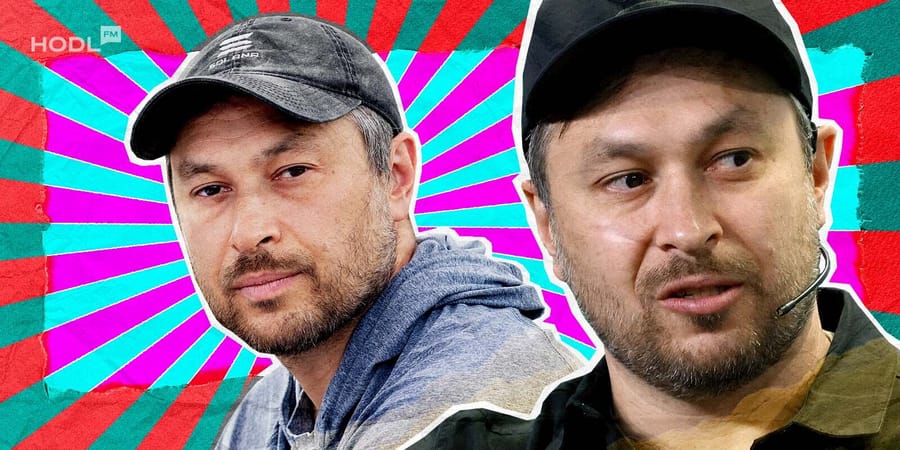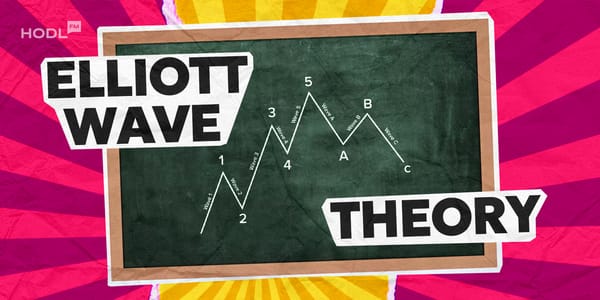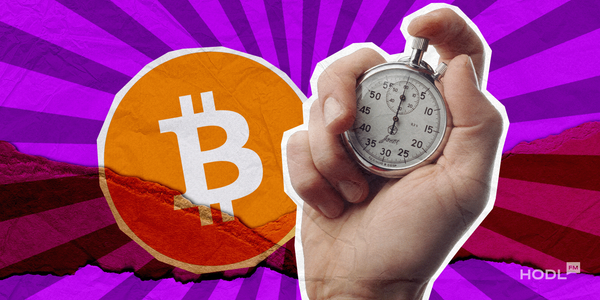Inside the worldwide blockchain arena, in which speed and decentralization often clash, one engineer set out to resolve a hassle that the general public thought was intractable. Anatoly Yakovenko, a former Qualcomm engineer who was obsessed with performance optimization, was no longer pleased with the restrictions of the cutting-edge blockchain structures. He considered how blockchains may want to work, making something special, as an opportunity to replicate what had already been carried out.
Solana, a blockchain platform that can process a large number of transactions per second with minimal expenses and fast confirmation, was born out of that imagination and prescience. As the CEO and co-founder of Solana Labs, Yakovenko has come to be one of the biggest architects of the decentralized generation. His goal is to build the infrastructure necessary to enable a genuinely decentralized, scalable, and global network.
Who is Anatoly Yakovenko?
Anatoly Yakovenko is a Ukrainian-American software engineer, entrepreneur, and blockchain innovator, most well-known as the co-founder and CEO of Solana Labs. He is famously known to have developed PoH (Proof of History), a groundbreaking consensus protocol that enables Solana to reach unbelievable throughput and low latency, what are its critical features that distinguish it from other blockchains like Bitcoin and Ethereum.
Though he’s sometimes jokingly referred to as having built the "Ethereum killer", Yakovenko doesn't like to focus on the rivalry aspect but on the vision of blockchain interoperability. His focus has always been on building a platform that can support high-performance transactions to be decentralized, which has made Solana a force to be reckoned with in the blockchain industry.
Yakovenko worked for more than 10 years at Qualcomm before founding Solana, focusing on his high-performance systems and distributed computing skills. His contribution to the wireless protocols and network synchronization would later affect the architecture of Solana, especially its scalability without losing speed.
Anatoly Yakovenko’s Age and Background
As of 2025, Anatoly Yakovenko age is approximately 44, having been born in Ukraine in 1981. He immigrated to the United States in the early 1990s. He started showing interest in technology when he was still very young, since he taught himself to code in C and also got familiar with Linux systems when he was a teenager. He later obtained a Bachelor's degree in Computer Science at the University of Illinois at Urbana-Champaign in 2003.
Yakovenko entered the world of professional activity in Qualcomm, where he devoted more than 13 years to the development of wireless protocols, operating systems, and compression technologies. The experience at that workplace provided him with valuable knowledge about the challenges of distributed systems and network synchronization, which would soon become his primary focus in Solana.
Besides Qualcomm, Yakovenko is also a co-founder of a startup, Alescere, which operated in the VoIP (Voice over IP) solutions during his university years. This initial entrepreneurship project preconditioned his future activity in blockchain, where he would meet with the same issues of scalability and efficiency that he had faced in the world of communications technology.
Anatoly Yakovenko's Net Worth
As of mid-2025, Anatoly Yakovenko's net worth is estimated to be between 400 and 500 million, but the actual numbers are dependent on the value of the native token of Solana. Most of his wealth is connected to his assets in Solana and other business projects.
He owns a significant number of SOL tokens since he is one of the co-founders of Solana. As per on-chain statistics, there is one related stake account that contains about 134,860 SOL. Which is worth around $23.78 million, assuming the SOL price in mid-2025 will be about $176.39 per token. Also, this account has received 180,506.45 SOL in staking rewards, or about $31.84 million. The total assets tracking SOL-related are about 315,366.75 SOL.
Anatoly Yakovenko’s Wife and Personal Life
Anatoly Yakovenko's wife, Laura Skelton, married him in 2013. The couple lives in California, most probably in the San Francisco Bay Area. Yakovenko does not disclose much about his personal life, and there is little information on the internet about his family, although he has a very visible role in the tech world.
When not working, Yakovenko likes to surf and bike, and he has attributed these hobbies to making him think creatively and get out of complex situations. Appropriately, the name Solana was named after Solana Beach, a beach location in California, where Yakovenko, along with his co-founder, consistently went surfing. As it is, where the majority of people are returning with a sunburn, Yakovenko returned with a blockchain.
The Birth of Solana
It was after two cups of coffee and a glass of beer that Yakovenko concluded that this was an excellent formula for rewriting the rules of blockchain.
Based on experiences in wireless network synchronization, he theorized how such cryptographic timestamps could be used to timestamp blockchain transactions, making them possible to order without regard to network consensus.
The concept was the basis of Proof of History, the essence of the Solana architecture. Anatoly Yakovenko and Raj Gokal co-founded Solana Labs, combining Yakovenko’s systems expertise with Gokal’s product and business vision. Alongside them, ex-Qualcomm engineers Greg Fitzgerald and Stephen Akridge helped develop the initial prototype. The project was first called Loom, which was later evolved into the Anatoly Yakovenko Solana project to avoid confusion with another blockchain.
Solana raised 20 million dollars despite having been introduced in the middle of a crypto bear market, and its mainnet was officially launched in March 2020. Its distinctive design brought the attention of developers, investors, and users who need scalable solutions to Ethereum.
Solana’s Technological Breakthroughs
The architecture of Solana brought several meaningful innovations to the blockchain industry:
- PoH (Proof of History): A cryptographic clock that timestamps transactions, allowing nodes to reach consensus on the order of events without constantly communicating.
- Tower BFT: A light consensus algorithm specifically designed for PoH, which makes it possible to rapidly and safely agree with the validators.
- Sealevel: A parallel smart contract run-time that supports parallel transaction execution--most blockchains run in sequence.
- Gulf Stream & Turbine: Systems that are optimized to forward transactions and broadcast blocks.
These innovations have allowed Solana to complete up to 65,000 transactions in one second and a transaction fee averaging a fraction of a cent. These features have made it one of the fastest and most economical blockchains in the global market.
Future of Solana and Yakovenko’s Role
Currently under the continued leadership of the same Yakovenko, Solana is moving beyond pure infrastructure to user experience and mass adoption. His vision is to have Solana as the invisible backend of Web3, an application behind applications with no user having the need to understand or even be aware of the layer of the blockchain.
Solana Labs is actively working on several fronts:
- Mobile-first adoption, including the release of the Solana Saga phone.
- Scaling solutions targeting over a million TPS.
Yakovenko is very active in engineering and strategic direction. He still has a head on the performance-driven and pragmatic attitude to control the platform despite setbacks like network outages and market volatility.
Conclusion
The life path of Anatoly Yakovenko, as a Ukrainian immigrant with an educational background in system engineering, to the founder of the Solana vision can be described as innovative and tenacious. His work has transformed the blockchain world as it solved one of the biggest problems in blockchain, that of scalability. Via Solana, Yakovenko has shown that fast, decentralized systems can be constructed and scaled to global demand. His leadership has played a key role in the success and development of the ecosystem as it keeps growing.
FAQs
Where is Anatoly Yakovenko From?
Anatoly Yakovenko was born in Ukraine in 1981 and emigrated to the United States in the early 1990s. The family of Yakovenko moved during the time of changes that happened in post-Soviet Ukraine, and he was raised and educated in the U.S. He is an American citizen and has recognized his Ukrainian roots, which defined his early life, prior to emigrating to the United States.
Is Anatoly Yakovenko married?
Yes, Anatoly Yakovenko is married; his wife is Laura Skelton. The couple married in 2013, and they have been residing in California. Laura Skelton is an avid scientist and has stood by Yakovenko in the process of establishing Solana, although she does not enter the spotlight very much.
What religion does Anatoly Yakovenko practice?
Although some may speculate about Anatoly Yakovenko Jewish background, he has never publicly discussed his religion. Among the greatest profiles, interviews, and public speeches made by Yakovenko, Anatoly Yakovenko's religion is never mentioned, and no particular beliefs that he professes can be seen. This is a secret part of his life. The state of technology and entrepreneurship is huge regarding the image of the public, Yakovenko, and he has never addressed the issue of religion in that way.
How much Solana does Anatoly Yakovenko have?
Being one of the founders of Solana, Yakovenko was also assigned a large number of SOL tokens, but it is not fully clear how much he has at the moment. On-chain analyses indicate that wallets linked with Yakovenko possess approximately 0.0256 percent of the total amount of SOL tokens, or an estimated 134,598.18 SOL tokens in one study. But this may not be everything he owns. Indeed, court documents have alluded to much greater figures: one July 2022 class-action complaint claimed that at some point, Yakovenko loaned out more than 11 million SOL tokens to a market maker (without satisfying their reporting obligations). It means that he could access at least that number of tokens during the early period of Solana.
What inspired Anatoly Yakovenko to create Solana?
Solana was invented by Anatoly Yakovenko, who was fascinated by the problem of blockchain scalability. As an employee of Qualcomm, where he had worked on high-throughput systems and wireless synchronization, he had seen a need to find a solution to make decentralized networks faster and more efficient. In 2017, in what he called an aha moment, he conceived a way to cryptographically timestamp transactions in order to verify the sequence without continual communication between nodes. This idea led to the creation of Proof of History- the main innovation of Solana. Yakovenko rushed to write a whitepaper and, along with an ex-colleague, started creating a blockchain with the capability of supporting web-scale apps without the bottlenecks that existed in the previous platforms.

Disclaimer: All materials on this site are for informational purposes only. None of the material should be interpreted as investment advice. Please note that despite the nature of much of the material created and hosted on this website, HODL FM is not a financial reference resource, and the opinions of authors and other contributors are their own and should not be taken as financial advice. If you require advice. HODL FM strongly recommends contacting a qualified industry professional.





